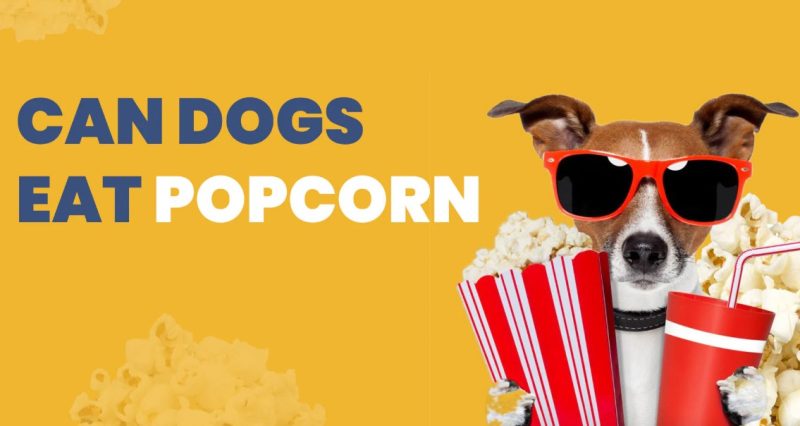Popcorn is a beloved snack for humans, often enjoyed during movie nights or as a light treat between meals. But when it comes to sharing this crunchy delight with your furry friends, the question arises: can dogs have popcorn? While it may seem harmless, there are several factors to consider before offering your dog a bowl of popcorn.
In this article, we’ll explore everything you need to know about dogs and popcorn, including its potential benefits, risks, and the best ways to serve it.
Is Popcorn Safe for Dogs?

In general, plain popcorn (without added salt, butter, or seasonings) is safe for most dogs to eat in moderation. Popcorn is a whole grain, and it doesn’t contain any ingredients that are inherently toxic to dogs. However, that doesn’t mean you should give it to them in large quantities or as a regular snack. Let’s dive deeper into the factors that determine whether popcorn is safe for your dog.
Plain Popcorn vs. Flavored Popcorn
Plain, air-popped popcorn is the best option if you want to give your dog a small snack. It is low in calories and fat, which makes it a relatively healthier alternative to other treats. However, flavored popcorn—especially varieties that come with added salt, butter, cheese, or other seasonings—can pose health risks to dogs. These added ingredients can be harmful to dogs, leading to digestive issues, weight gain, and in severe cases, even poisoning.
For example:
- Salt: Excessive salt intake can lead to sodium ion poisoning, causing symptoms such as vomiting, diarrhea, excessive thirst, and seizures.
- Butter and Oil: These ingredients add unnecessary fat and calories, which can contribute to obesity and pancreatitis in dogs.
- Artificial Flavors and Sweeteners: Some flavored popcorn may contain artificial sweeteners like xylitol, which is toxic to dogs and can cause rapid hypoglycemia, liver failure, and even death.
Popcorn Kernels and Unpopped Kernels
While popcorn itself can be safe, the kernels—especially unpopped ones—pose a choking hazard. Dogs may find it difficult to chew hard, unpopped kernels, which could lead to dental damage or even choking. Always ensure that the popcorn you give to your dog is fully popped and free of unpopped kernels.
Health Benefits of Popcorn for Dogs
Although popcorn shouldn’t be a regular part of your dog’s diet, it does have some potential benefits when given occasionally. Here are some of the positive aspects of feeding your dog plain popcorn in moderation:
Low in Calories
Popcorn is a low-calorie snack, making it a great option for dogs who need to watch their weight. For example, a cup of plain, air-popped popcorn contains just around 30 calories, making it a light treat compared to other high-calorie dog treats. When given in moderation, popcorn can help keep your dog’s weight in check while still offering a tasty snack.
Rich in Fiber
Popcorn is a whole grain, and like many other whole grains, it contains fiber. Fiber is important for digestion, as it helps regulate bowel movements and can promote healthy gut function. While popcorn shouldn’t replace your dog’s regular meals, offering a small amount of this fiber-rich snack every now and then can contribute to their overall digestive health.
Source of Antioxidants
Popcorn contains antioxidants, particularly polyphenols, which can help protect cells from damage caused by free radicals. These antioxidants are beneficial for both humans and dogs, as they may contribute to reducing the risk of certain diseases and promoting general health. Although the amount of antioxidants in popcorn may not be as high as in other foods, such as berries, it’s still a nice bonus in an occasional snack.
Risks of Feeding Your Dog Popcorn
While popcorn can be safe in small amounts, there are risks associated with giving it to your dog. It’s essential to be aware of these potential hazards before you decide to share your popcorn with your pup.
Choking Hazards
As mentioned earlier, unpopped kernels can be a serious choking hazard for dogs. Additionally, even fully popped kernels can get stuck in a dog’s throat, especially if they are too large or if the dog is overly excited while eating. Always monitor your dog when giving them popcorn and make sure the pieces are small enough to be easily chewed.
Obesity and Weight Gain
If you feed your dog too much popcorn, it can contribute to obesity. Popcorn is a carbohydrate-rich snack, and too many carbohydrates in a dog’s diet can lead to weight gain. If your dog is already on a low-calorie diet or has health concerns such as arthritis or diabetes, it’s important to avoid giving them too many high-calorie snacks like popcorn. Always remember that treats, including popcorn, should only make up 10% or less of your dog’s daily caloric intake.
Digestive Issues
Some dogs may have sensitive stomachs and may experience digestive issues after consuming popcorn. This can include gas, bloating, or diarrhea, particularly if the popcorn contains too much fat or seasoning. It’s best to stick with plain popcorn and monitor your dog’s reaction after they eat it. If they seem to have trouble digesting it, you should avoid giving it to them in the future.
Potential for Allergies
While rare, some dogs may have food allergies to certain grains, including corn. If your dog has never had popcorn before, it’s a good idea to introduce it slowly and observe for any signs of an allergic reaction. Symptoms may include itching, hives, ear infections, or gastrointestinal distress. If you notice any of these signs after your dog eats popcorn, contact your vet immediately.
How to Safely Serve Popcorn to Your Dog
If you’ve decided to treat your dog to a small amount of popcorn, it’s important to do so safely. Here are some tips on how to serve popcorn in a way that minimizes any potential risks:
Make It Plain
Always stick to plain, air-popped popcorn. Avoid popcorn with any added salt, butter, cheese, or seasoning. You can make your own at home by using an air-popper or stovetop method with minimal or no oil.
Watch Portion Sizes
While popcorn can be a low-calorie snack, portion control is still important. Only give your dog a small handful of popcorn as a treat. A few pieces of popcorn are enough for most dogs. Large portions can lead to weight gain or digestive problems.
Avoid Kernels
Make sure that the popcorn is fully popped and free of any unpopped kernels. These kernels can be difficult for your dog to chew and can cause choking, dental problems, or digestive discomfort.
Monitor Your Dog
After giving your dog popcorn for the first time, keep an eye on them to make sure they don’t have any adverse reactions. Watch for signs of digestive distress or discomfort. If they seem to enjoy it and don’t experience any problems, you can continue to offer popcorn occasionally.
Alternatives to Popcorn for Dogs
If you’re looking for safer or healthier alternatives to popcorn, there are plenty of dog-friendly snacks you can offer. Here are some options:
- Carrots: Low in calories and rich in vitamins, carrots are a crunchy treat that dogs love. They also promote good dental health by helping to clean teeth.
- Apple Slices: Apples are a great source of fiber and vitamins. Just make sure to remove the seeds, as they contain cyanide, which is toxic to dogs.
- Sweet Potatoes: Cooked sweet potatoes are high in fiber and nutrients and can be a healthy snack for dogs.
- Cucumber: Cucumbers are low in calories and hydrating, making them an excellent choice for a refreshing treat.
- Peanut Butter: Dogs love peanut butter (without xylitol), and it can be a great occasional snack when spread on a toy or mixed into their food.
Conclusion: Can Dogs Have Popcorn?
The short answer is yes, dogs can have popcorn, but only in moderation and under specific conditions. Plain, air-popped popcorn can be a safe, low-calorie snack for your dog, offering some benefits such as fiber and antioxidants. However, flavored popcorn with added salt, butter, or seasoning should be avoided, as these ingredients can be harmful to dogs. Always remove unpopped kernels and monitor your dog for any adverse reactions.
If you’re ever unsure about whether a particular treat is safe for your dog, it’s always a good idea to consult with your veterinarian. They can offer personalized advice based on your dog’s health, breed, and dietary needs.






